On May 10, the "2022 China-Europe Seminar on Human Rights ", hosted by the China Society for Human Rights Studies and the Austria-China Friendship Association, organized by the National Human Rights Education and Training Base, Institute for Human Rights Law of Huazhong University of Science and Technology, and the Austria-China Law Association, was successfully held. This seminar has two main venues in China and in Austria, and the main venue in China is located in the Wutongyu Academic Exchange Centre of Huazhong University of Science and Technology. Representatives from the the UN’s Office of the High Commissioner for Human Rights and more than 100 human rights experts and scholars from the political, academic, legal, scientific and technological fields of China, Austria, France, the United Kingdom, Germany, Hungary, Italy, Greece, Spain, etc. discussed technology and human rights in an "online + offline" way.
Human Rights and Unilateral Economic Sanctions in International Law
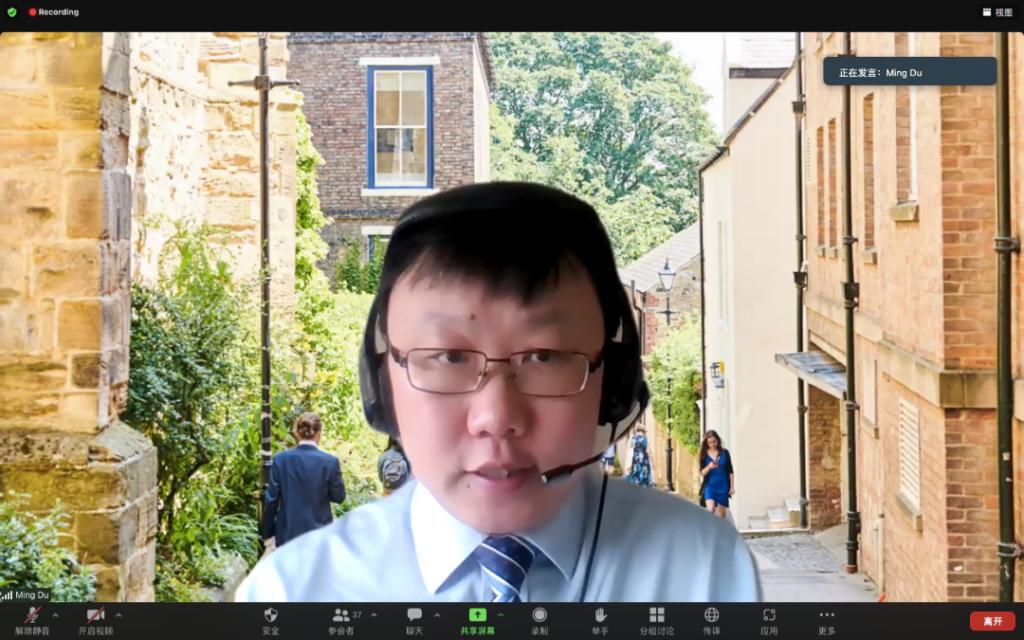
Professor Du Ming,director of the Center for Chinese Law and Policy at Durham University Law School, delivered a speech on the topic of "Human Rights and Unilateral Economic Sanctions in International Law". He pointed out that forcing other states to comply with their obligations under international human rights law through unilateral economic sanctions was a controversial act in international law, since the sanctioned state would not only fail to comply with such acts, but also impose counter-sanctions and even trigger secondary sanctions. He said that in practice, unilateral economic sanctions are contrary to international law. Firstly, it violates customary international law that cannot be coerced or interfered in the internal affairs of other countries. Second, it violates the international treaties. Most countries consider unilateral economic sanctions to be illegal and have introduced corresponding measures. Therefore, the current practice of mandatory unilateral economic sanctions usually does not solve the problem, but rather becomes an obstacle.
Digital Humanism and the Digitization of Humanities
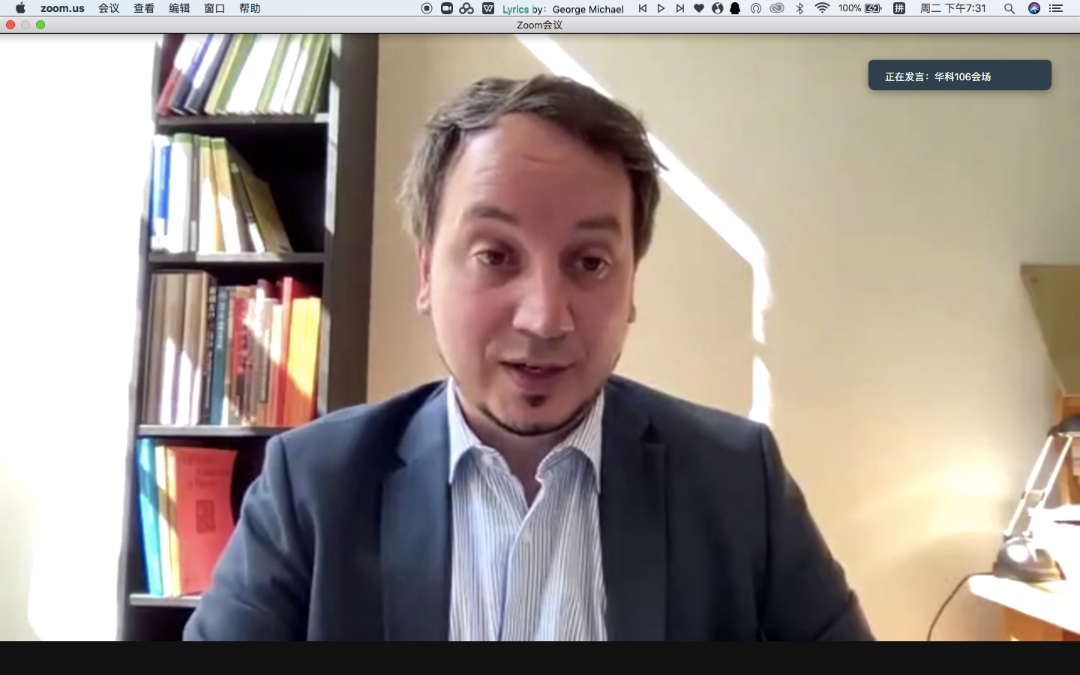
Professor Hannes Fellner of the Department of Linguistics, Department of Digital Documentation, University of Vienna, gave a speech entitled "Digital Humanism and the Digitization of the Humanities". He proposed that the decisive forces of production in industrialized countries were computers and information technology, which promoted the development of the entire social sphere. However, digital surveillance of people increases the degree of surveillance and exploitation of people. In addition, AI has replaced some of the jobs that were previously done manually, which may lead to more unemployment. The essence of the above problems is not the technology itself,but who has the ownership and control the data.The Vienna Declaration of Digital Humanism sets out that at the heart of digital humanism is the design of digital technologies that promote democracy, inclusion, privacy and freedom. Digital humanism has created opportunities for the digitization of humanities and the use of digitization for the benefit of humanity.
The Legal Basis and Protection Approach for Individuals from Automated Decision-making Power
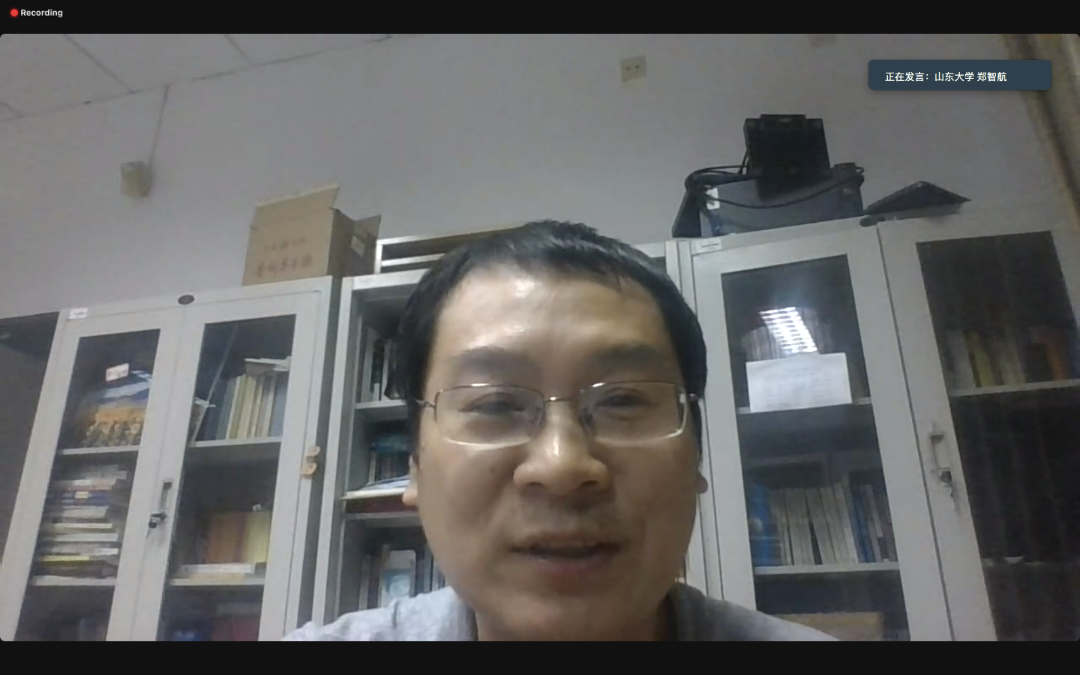
Professor Zheng Zhihang, Executive Deputy Director of the Human Rights Research Center of Shandong University, delivered a speech on the topic of "Legal Basis and Protection Approach for Individuals from Automated Decision-Making Power". He said that today's computer technology and algorithmic programs automatically generate decisions are widely used, but this technical paradigm of numerical definition that places too much emphasis on efficiency and logic often leads to a loss of human subjectivity. To this end, he proposed two solutions. Firstly, legal automated decision-making violates human dignity and principles, so it is necessary to adopt a cautious attitude towards automated decision-making, implement institutionalized decision-making, and ensure the core interests of digital subjects. Secondly, the monitoring of rights should emphasize that data owners always have the right to intervene manually. Finally, he noted that a whole-process balance protection from automated decision-making should be established, balancing the relationship between data controllers and data subjects.
Human Rights Regulation of Artificial Intelligence Technology
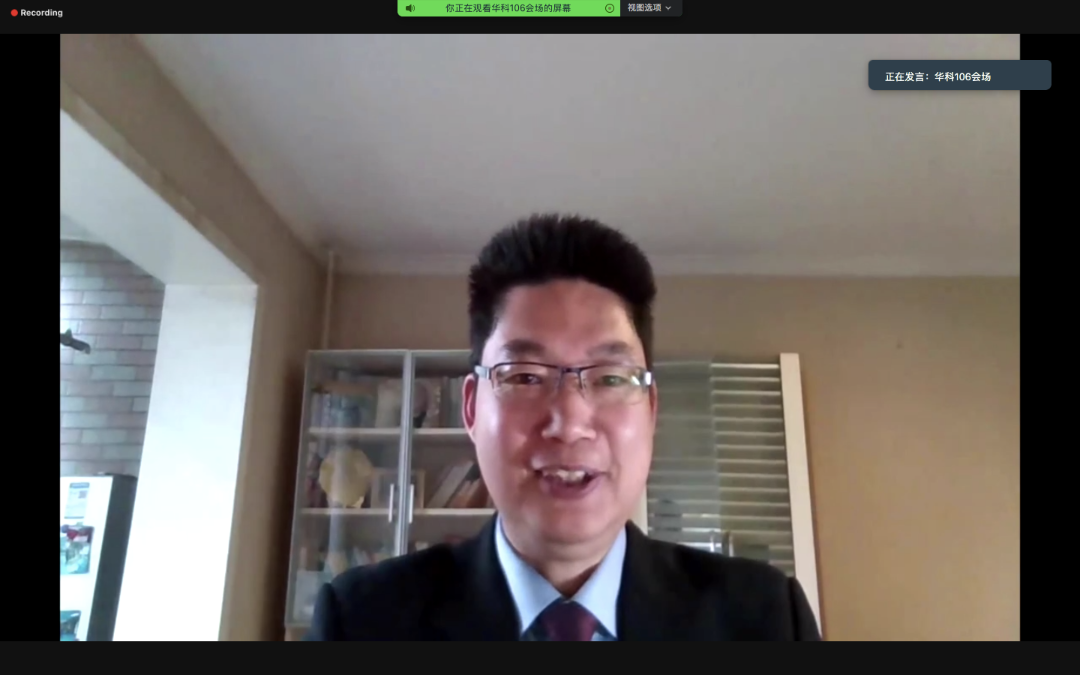
Xiao Junyong, executive director of the Human Rights Research Center for Science and Technology of Beijing Institute of Technology and professor of the School of Law, systematically elaborated on the theme of "Human Rights Regulations on Artificial Intelligence Technology". He said that the large-scale application of artificial intelligence has brought uncertainties to human rights governance, including many potential risks, and requires the human rights governance system to adopt new perspectives and new solutions to regulate, so that technology can return to the basic route of good. He proposed that the main causes of human rights violations that artificial intelligence may cause are as below: the opinions of marginalized groups are difficult to express; the gap between the status of users and service providers is too large, and there is no opportunity and ability to negotiate; users are scattered, making it difficult to accurately assess the status of human rights protection; and the lack of monitoring mechanisms and norms. He proposed that administrative regulatory regimens should be used to prevent AI-powered human rights violations, and conducted a cost analysis of administrative regulatory regulations.
The Development of Artificial Intelligence Technology from the Perspective of Environmental Human Rights: Taking the Construction of Smart Courts as An Example
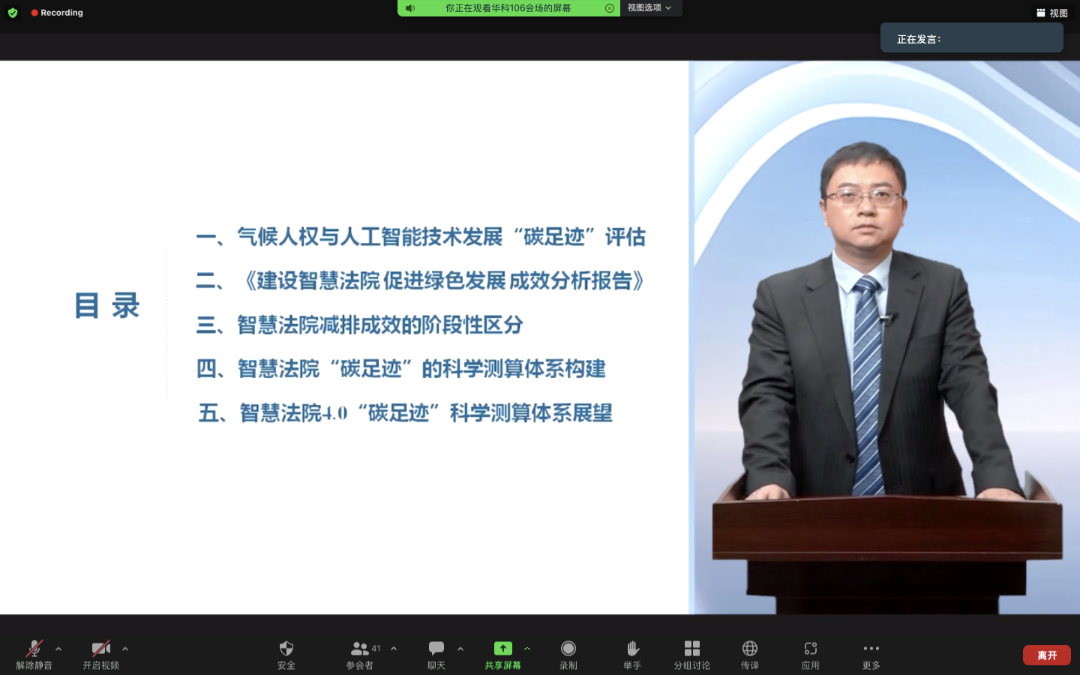
Professor Wang Zhu of Sichuan University Law School delivered a speech on "The Development of Artificial Intelligence Technology from the Perspective of Environmental Human Rights:Taking the Construction of Smart Courts as an Example. Taking the Supreme People's Court's "Analysis Report on the Effectiveness of Building Smart Courts to Promote Green Development" as an example, he introduced the phased distinction between the emission reduction effects of smart courts, so as to build a scientific calculation system for the carbon footprint of smart courts. The effectiveness analysis report is divided into three parts, one is to serve the people, the second is to serve the trial enforcement, and the third is to serve the judicial management. In addition, he clarified how the above emission reduction effects were achieved by distinguishing the four stages of the informatization construction of smart courts. Finally, he proposed the carbon footprint problem of the equivalent effect achieved by artificial intelligence, the premise of which is that the calculation of the carbon footprint itself should be scientific, so as to help achieve the goal of double carbon.
A Possible Wisdom of Human Rights
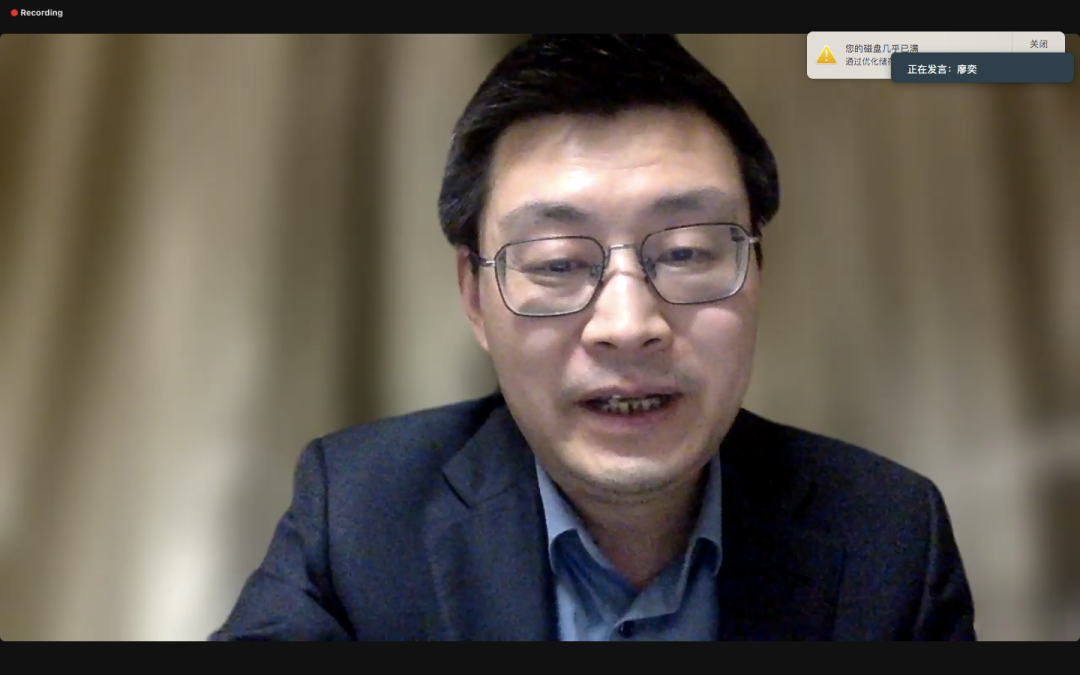
Professor Liao Yi of Wuhan University Law School systematically elaborated on the theme of "A Possible Wisdom of Human Rights". He proposed that under the boom in the study of "digital human rights", it is necessary to think about the fundamental issues of human rights from the philosophical perspective of "possible world". This kind of philosophical thinkingrefers to theunderstanding the ontological basis of the good life, and it revaluates themethodological concerns for revaluing intelligent technology. Thephilosophical thinkingopposesmetaphysicsand reconstructsthe "first philosophy". From the examples of the discourse of "prepaid human rights" in contemporary China, it can be found that this kind of thinking has long begun, but it has not had enough influence on human rights theory and legal research. Pursuing the structural logic of the "prepaid human rights" theory can show similar problems between Western human rights discourse and today's Chinese digital human rights discourse, and return to the true nature of human wisdom and ethics in the fog of rights discourse.
TelltheStory of Science and Technology to Improve People's Livelihood and the Greatest Human Rightsin China
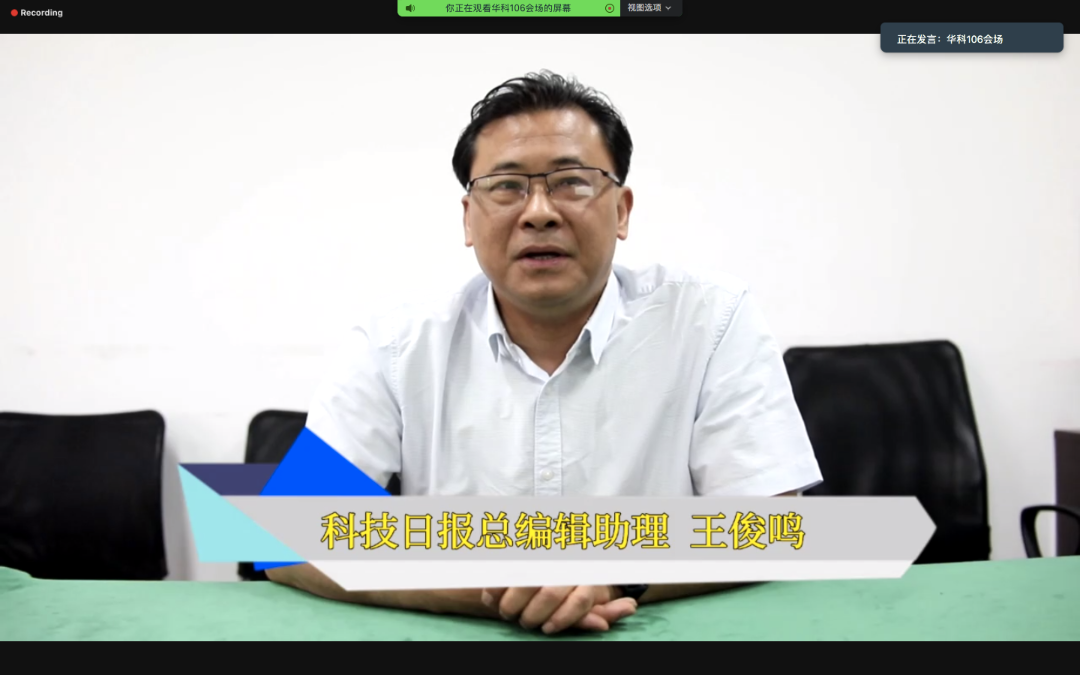
Wang Junming, assistant to the editor-in-chief of Science and Technology Daily, delivered a speech on the theme of "Tell the Story of Science and Technology to Improve People's Livelihood and the Greatest Human Rightsin China". First of all, he pointed out that the people's happy life is the greatest human right, and China has carried out a series of successful practices under this concept and advocated, and has achieved a comprehensive victory in poverty alleviation and a stage victory in the fight against the epidemic. Second, he shared the importance of science and technology to improve people's livelihood and the great contribution made by China's science and technology assistance in the fight against the epidemic. Finally, he stressed the need to tell the story of China's science and technology to improve people's livelihoodatthe internationallevel.Science and Technology Dailyhas always been committed to telling the true story of science and technology supporting and leading the development of people's livelihood, telling the real development stories of remote areas such as Xinjiang and Tibetbothat home and abroad, showing the great changes brought by China's science and technology to improve people's livelihood and the vigorous development of the cause of Chinese rights.
Serve the "people's happy life" and Ensure the "science and technology to promote human rights"
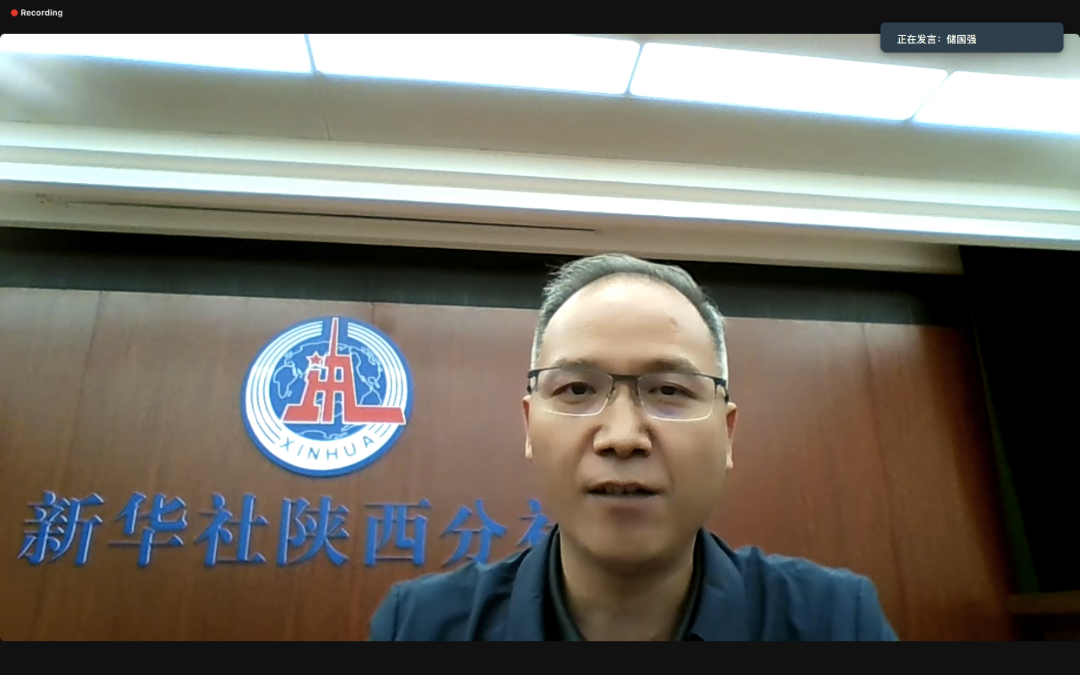
Mr. Chu Guoqiang, Vice President of Shaanxi Branch of Xinhua News Agency and member of the research group of China's View of Democracy, Freedom and Human Rights, NCR, made a speech on the title of " Serve the ‘people's happy life’ and Ensure the ‘science and technology to promote human rights’ '".He pointed out that the cause of human rights is the cause of the people, and it must be people-centered. He believes that scientific and technological progress can enhance the ability and level of human rights protection. Technology is neutral, but the user motivation is divided between good and evil. On the road of promoting human rights through science and technology, we are facing the risks of personal information leakage, technological hegemony and "technological divide", etc. Countries in the world need unity instead of confrontation, cooperation instead of decoupling, openness instead of blockade, and communication instead of sanctions. Finally, he stressed that developed countries should take more responsibility to let developing countries enjoy the development dividends of all mankind.
On the Two sides of Data Power and Its Governance
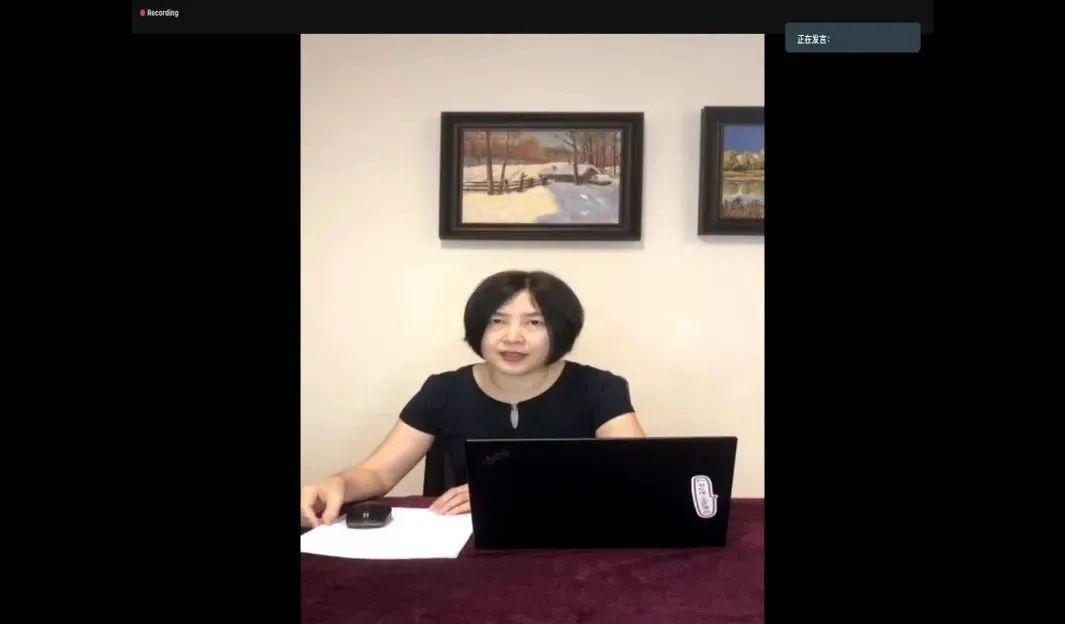
Professor Zhao Shukun, Assistant Dean of Institute for Human Rights, Professor of Southwest University of Political Science and Law, made a speech on "The Two Sides of Data Power and Its Governance". She proposes that data power, as an emerging form of power, already has a general dominance of power, that is, a technology-centered relationship of knowledge domination monopolized by the intellectual elites in the era of Internet big data. She talked about how, on the one hand, by placing data power under the analytical framework of political state and civil society, it can play a restraining function on the traditional exclusive public power of the political state. But on the other hand, because it is monopolized by a few large Internet enterprises, it will still have an adverse impact on the basic rights and freedoms of citizens. We need to be led by the rule of law thinking, emphasizing the need to decentralize within the data power system and emphasizing anti-monopoly and rule of law power control.
"Digital Human Rights" do not Constitute Fourth-generation Human Rights
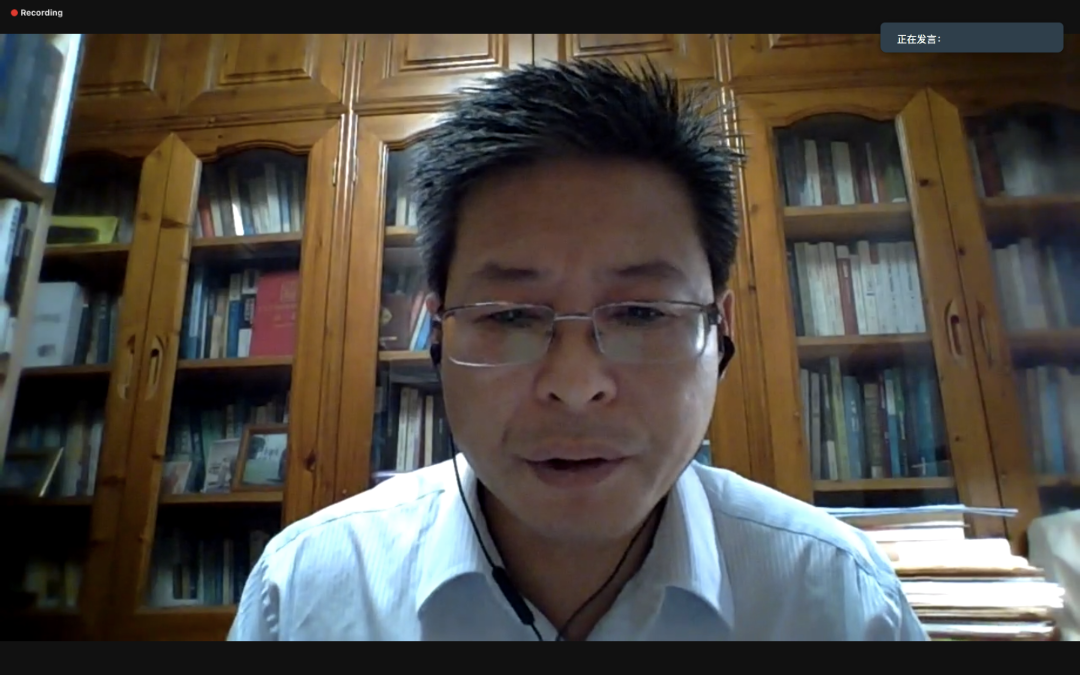
Professor Liu Zhiqiang from the Institute of Human Rights of Guangzhou University made a speech on the topic of " 'Digital Human Rights' do not Constitute Fourth-generation Human Rights". He pointed out that from the principle of intergenerational division, "digital human rights" belongs to an increase in the number of human rights, which can be reasonably explained within the framework of the existing human rights system, and does not constitute an intergenerational innovation of human rights. From the viewpoint of moral attributes, "digital human rights" does not have the moral basis of human rights, lacking "humanity" as the core value and moral basis, and cannot become a basic human right. From the viewpoint of fundamental rights, "digital human rights" lacks the normative basis of the Constitution and cannot be established as a fundamental right because it does not meet the criteria of "human dignity" and "minimum basicity". He concluded that "digital human rights" areneithera new type of human rights upgrade the fourth generation of human rights,norhuman rights.
Digital responsibility from the perspective of business and human rights
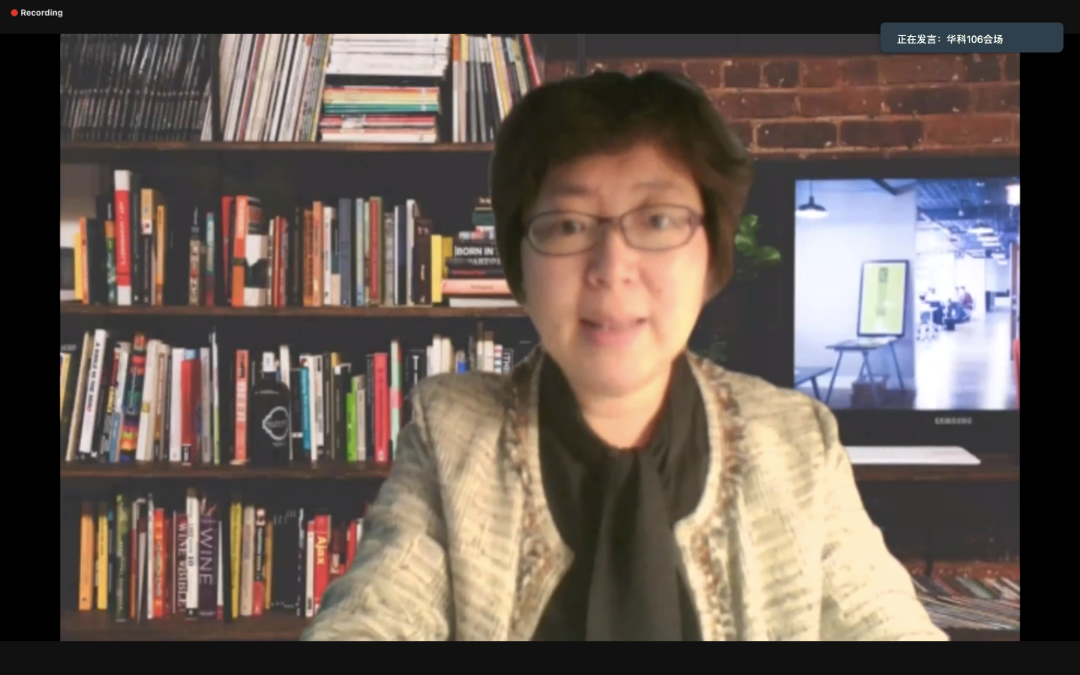
Tang Yingxia, deputy director of the Human Rights Center of Nankai University and associate professor of the Law School, made a speech on the topic of " Digital Responsibility from the Perspective of Industry, Commerce and Human Rights".She proposed that human rights responsibility is the second pillar of The UN Guiding Principles on Business and Human Rights, the core concept of corporate respect for human rights responsibility, it requires all enterprises to assess and identify human rights risks to their own business relations in their supply chains, and to eliminate or mitigate adverse human rights impacts. She focused on the legal framework of enterprises in the context of industrial and commercial human rights, the challenges for the human rights of digital supply chain, and the construction of the human rights of enterprises in the context of digitalization. She stressed the need to remove barriers to human rights accountability in the digital context and to explore human rights accountability approaches adapted to digital supply chains from existing human rights laws and digital data laws.
Human rights in the changing times
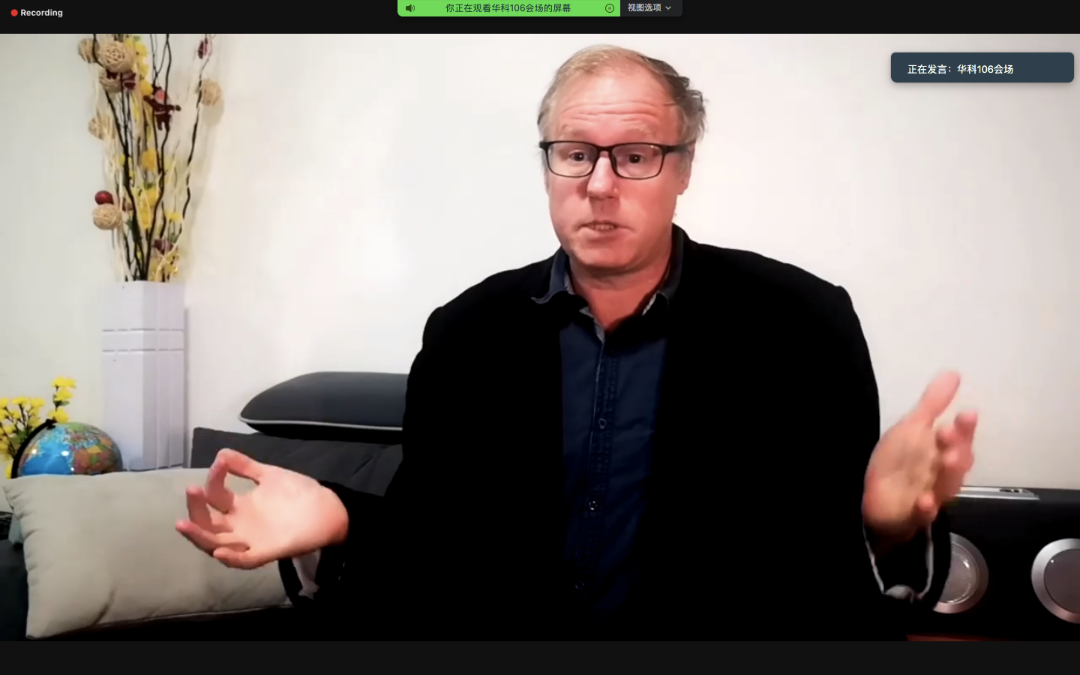
Nils Bergman, Foreign editor of China Central Radio and Television Station, made a speech on the topic of "Human Rights in Changing Times. He said the current speed of digital technology is beyond the reach of other technologies. The development of digital technology has brought convenience to human beings, but there are also hidden dangers. Digital technology should support and assist humans, not the other way around. If humans act like robots, humans may be replaced by machines. He emphasized that even artificial intelligence with consciousness should not be given human rights, which are closely related to human dignity. Looking ahead, the blind spots in the digital world will eventually be eliminated. Finally, he made a comparative analysisonthe human rights policiesinChinaand Western countries, with the West emphasizing purely individual human rights and China emphasizing the dialectical unity of individual and collective human rights.
A Study of the Balance of Digital Rights

Professor Xu Ming, Department of Law, School of Public Administration, China University of Geosciences, elaborated on the theme of "A Study of the Balance of Digital Rights". She said that clarifying the connotation of digital rights and obligations is a necessary prerequisite for digital human rights protection. The protection of digital rights from infringement is actually a matter of balance of digital rights. In the balance of digital rights and digital rights, the three criteria for guaranteeing are the legitimacy of rights, the size of the benefits of rights and the protection of the rights of the weak. On the balance of digital rights and obligations, the complementary relationship between rights and obligations, the subordination of obligations to rights, and the fulfillment of obligations are to be guaranteed by three criteria. She believes that the balance of digital rights should be used to guarantee that the digital rights and digital obligations of every citizen will not be increased arbitrarily, so that the digital power can be exercised fully and not beyond their authority.
Reinventing Human Rights in the Digital Age
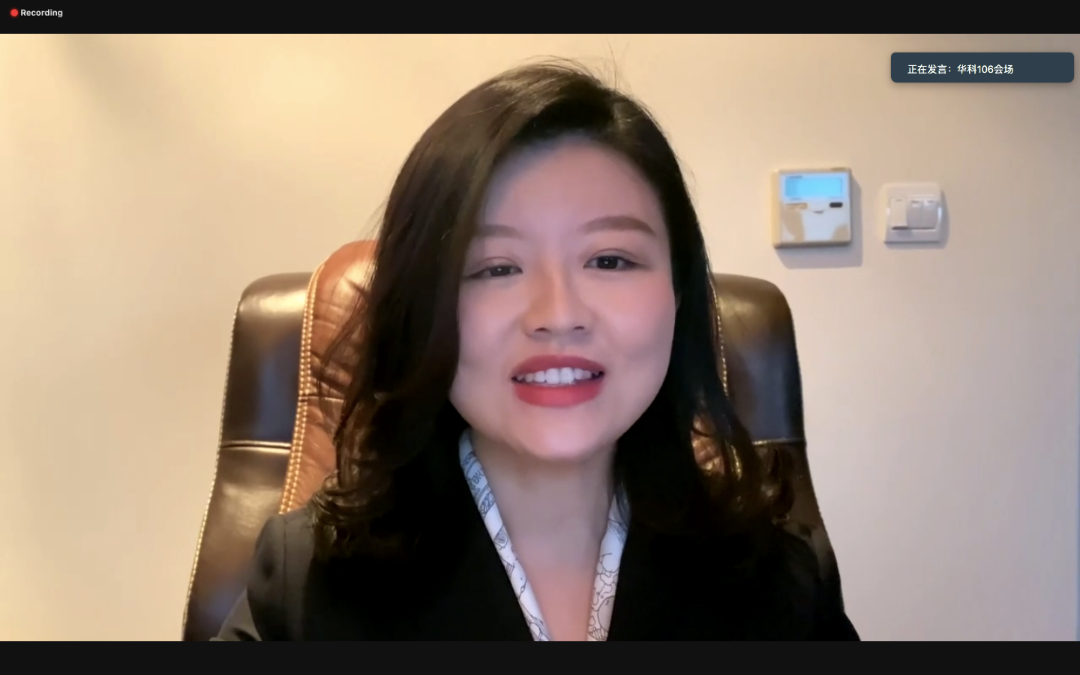
YU Shengqi, Lecturer of Shanghai University of Political Science and Law, made a speech with the title of "Reinventing Human Rights in the Digital Age". She mentioned that in the past 2021, the metaverse, brain-computer interface, data compliance, face recognition, and algorithmic interpretation rights have become social hot spots. The digital age has facilitated people's lives but also challenged traditional human rights theories: big data challenges "human dignity," the digital economy impacts traditional human rights, and the "information person" affects traditional human rights subjects. The theory of "three generations of human rights" proposed by Karel Vasak is known and accepted by the public, namely, the first generation of political rights, the second generation of economic, social and cultural rights, and the third generation of the right to self-determination of peoples and the right to survival and development. The information revolution has given birth to the "fourth generation" of human rights, which will maximize the protection of human dignity and the realization of human values in the dual space and triadic structure of social relations.
Automated Decision-making System and the Right Paradigm of Personal Information Protection
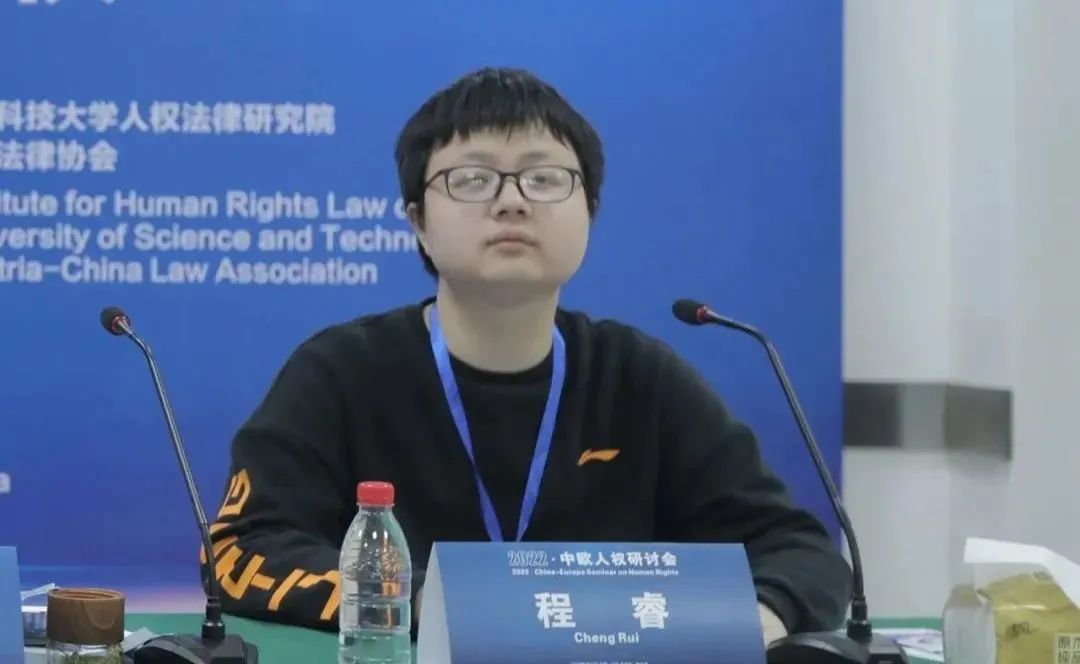
Cheng Rui, Ph.D. of Institute of Human Rights Law, Huazhong University of Science and Technology, made a speech under the topic of "Automated Decision-making System and the Right Paradigm of Personal Information Protection". He said that in the digital era, the penetration of automated decision-making into social life has greatly contributed to the development of human society, but there are also risks of infringing on personal information and human rights. The legal system must balance the relationship between automated decision-making and personal information protection, and allocate rights and obligations between information subjects and information controllers in a reasonable manner. He proposed to construct a legal framework that both guarantees human rights and promotes scientific and technological progress through the rights paradigm, thus achieving the dual goals of promoting personal information protection and the development of automated decision-making. Finally, he emphasized that the development of technology must serve people, and digital technology must respect and guarantee digital human rights with personal information as the core.
Professor Liao Yi of Wuhan University Law School made a comment. He summarized the speeches of experts and scholars into two categories: one is descriptive and expository, showing the close connection between science and technology and human rights by telling true stories and explaining the theories of human rights. The second is normative research, such as exploring how to establish a new technical evaluation standard from the perspective of human rights protection, the decentralization and limitation of data rights, whether "digital human rights" constitute the fourth generation of human rights, and how to better build smart courts, which provide constructive ideas for the discussion of "science and technology and human rights". He pointed out that it is necessary to firmly grasp the main line of "science and technology and human rights" at the value level, rationally regulate the rapid development of technologies according to the forms of different technologies and the focus of different problems, and adhere to the position we should take in the face of science and technology.
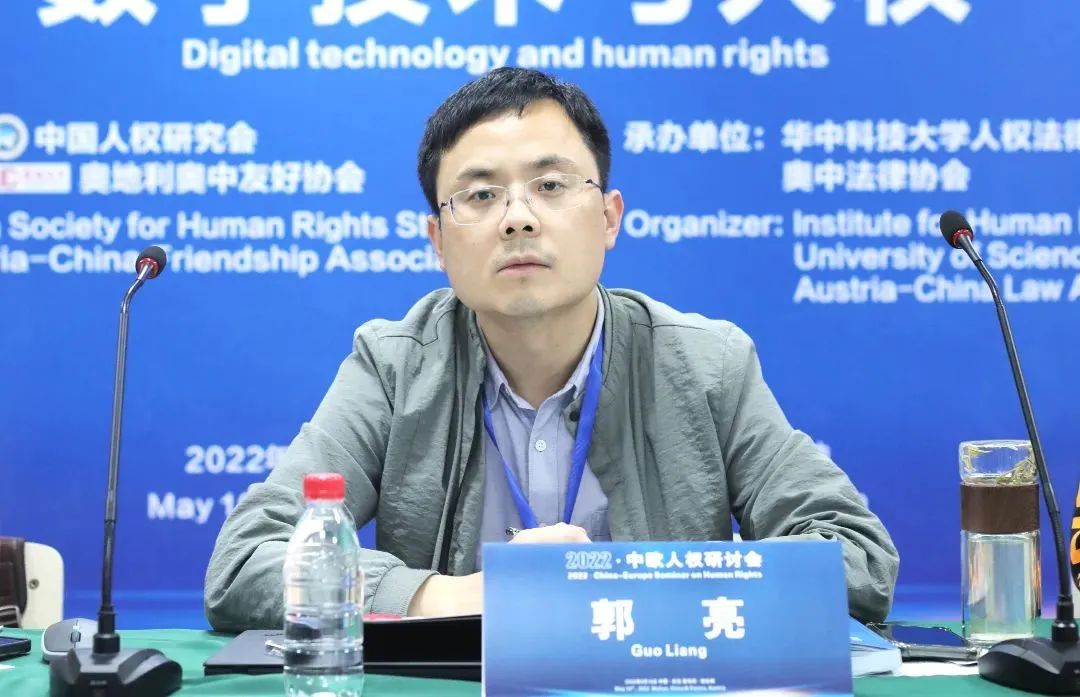
Guo Liang, researcher at the Institute of Human Rights Law of Huazhong University of Science and Technology and professor at the Law School, commented on the consensus and differences arising from the discussion. The consensus is reflected in the fact that dealing with the uncertainty brought about by the digital age is a new issue facing everyone. As a force in the development of the information society, the impact of information technology on people is first reflected in the challenge to the status of the subject. Even in the digital age, people are still subjects, and digitization is not a subject. Science and technology are always tools, and the more science and technology develop at a high speed, the more we must exalt the main position of people. The divergence is reflected in the divergent views on whether existing human rights theories and the rule of law can meet the challenges of human rights in the digital age. Some scholars believed that a slight adjustment can effectively meet the challenge; others believe that "digital human rights" do not constitute a fourth generation of human rights. Finally, he emphasized that whether "digital human rights" can constitute the fourth generation of human rights has to be explored in the context of human rights theory itself, therefore it requires the enhancement of basic knowledge and literacy of human rights.
At the closing ceremony, Professor Liu Zhiqiang shared the discussion of the thirdparallel sessionas a representative. He said that the speeches of the participating scholars focused on the "five theories", namely, attribution theory, critique theory, international theory, story theory, and controversy theory. At the same time, he put forward his personal views on the topic of "science and technology and human rights": in the digital age, no matter how science and technology develop, it cannot change human nature, origin of human rights, and positioning of human dignity. He then argues about "digital human right," and ultimately, we have to go back to the original human rights and argue "whether it is a human right." To this end, he proposed the following four criteria for argument: First, whetherthe"digital human right" has a constitutional normative basis. Second, whetherthedigital human right meetsthe standard of 'human dignity' and are moral. Third, whetherthe"digital human right"isa minimum basic right. Fourth, whetherthe"digital human right"isuniversal. Finally, he stressedthat to demonstratewhetherthe"digital human right"isa human rightneeds go back to the context of the historical basis and era in whichthe previous three generations of human rights emerged.